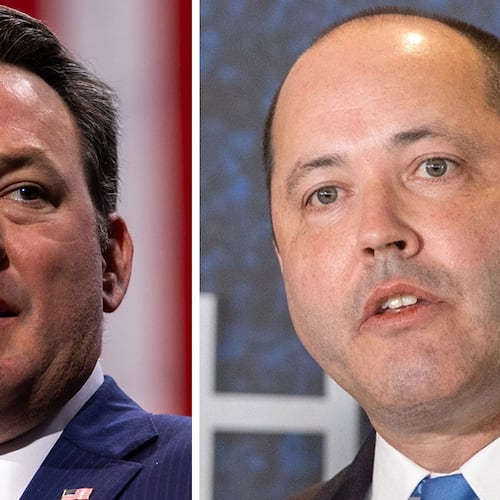Across Georgia, citizens are demanding stronger protections and greater accountability in the wake of the devastating collapse of First Liberty Building and Loan, a scandal that left hundreds of Georgians, and investors nationwide, robbed of their life savings. As more facts emerge, one thing is already clear: Our current securities laws are not strong enough to prevent this kind of harm or to bring swift justice when trust is exploited.
The victims of First Liberty weren’t reckless risk-takers. They were everyday Georgians — churchgoers, small business owners and community leaders who believed they were making responsible, values-driven financial decisions. Some were persuaded by religious language or patriotic appeals; others were guided by licensed professionals who should have known better.
While our office works closely with the Securities and Exchange Commission to recover some of the $140 million lost, we face a hard truth: Georgia’s Securities Division currently lacks the tools and authority to proactively stop schemes like this or to move quickly on behalf of victims. We’re operating with limited enforcement power in a state where financial fraud can too easily take root and too slowly be punished.
That’s why we’ve been working hand-in-hand with members of the General Assembly to modernize and strengthen our laws. Last session, we supported Senate Bill 284, legislation that would have closed critical loopholes and expanded our ability to pursue bad actors. While it fell short of final passage, it laid important groundwork. But we must go further.
Credit: TNS
Credit: TNS
In the upcoming legislative session, we look forward to continuing our work with the General Assembly to advance broader, bipartisan reforms, including:
• Enhanced enforcement tools to pursue fraudsters and recover stolen funds more efficiently
• Direct recovery authority so stolen money can be returned to victims faster
• Stronger penalties to deter future fraud — including bringing Georgia’s sentencing in line with tougher states like Texas
• More investigative resources; Georgia has just a staff of 10, compared to 50 in similarly sized states
• The ability to appoint special enforcement attorneys to cut through red tape and speed up justice
This is not just about prosecution; it’s about prevention and meaningful restitution. Criminal convictions alone won’t restore what has been lost. For many victims, the impact is permanent. With stronger legislation, our office — already tasked with regulating this sector — can also play a central role in returning stolen funds and preventing future harm.
We also continue to set the tone on accountability. I was among those who received campaign contributions linked to First Liberty and was the first to return those funds to the court-appointed receiver overseeing victim compensation. Others must do the same. Ill-gotten gains have no place under the Gold Dome.
We remain committed to working side by side with the General Assembly to deliver the protections Georgians deserve. Together, we can build a system that doesn’t just respond to fraud, but actively prevents it, holds wrongdoers accountable and makes victims whole.
Brad Raffensperger, a Republican, is the secretary of state of Georgia.
About the Author
Keep Reading
The Latest
Featured



